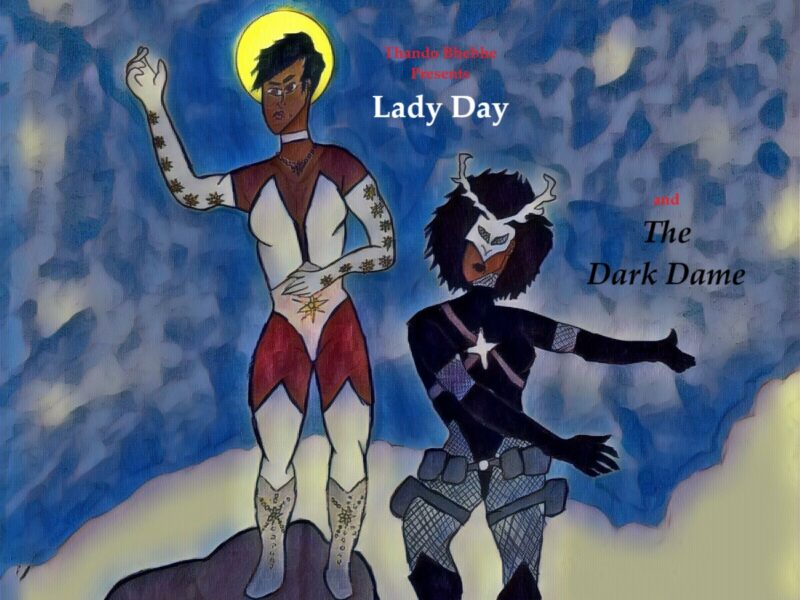“Hi, can I have a veggie wrap and a medium double-double please?” These are the words I speak at William’s on Thursday nights in between class. Trail mix, soup, wraps, lentils, and maybe tofu: this is a list of things I look for at FreshCo.
My name is Allie Leonard and as of today, November 18, 2010, I have not eaten an ounce of meat in 18 days; the result of a challenge a friend and I have accepted: No Meat November.
On the last day before my meat-less life began I went to Fast Eddie’s. The classic cheeseburger and crazy fry combo made it tempting to bail on a vegetarian lifestyle before I had even started. Luckily, the post-meal stomach ache, guilt, and general feeling of grossness encouraged me to at least try it. After I consumed the greasy, but delicious mass of food I remembered watching Food Inc. in David Morris’ Regional Landscapes in Context class.
There are many reasons one might want to become a vegetarian. Watching documentaries like Food Inc. or Earthlings can easily turn anyone’s stomach.
These films outline a few aspects that are allegedly wrong with the food industry: mass farming, animal abuse, use of toxins, and environmental harm.
The idea of ingesting ammonia every time I ate a hamburger was what caught my attention. The people behind Food Inc. made it clear that Tyson and Perdue, who account for 80 percent of the meat market, do add ammonia to meat to make it edible. Also, because many animals are raised in unsanitary conditions, they constantly consume antibiotics – yet another foreign substance to enter the human body.
The small-time, wholesome farmer is disappearing with the introduction of mass factory farms. No longer is it necessary to farm a cow, send it to the butcher and eventually to a market. Animals can be grown, killed, and packaged quicker than ever before. The chickens that supply KFC with the “Double Down” are now twice as large and conveniently take half the time to mature. More antibiotics and more production equal more sales, more money.
The veggie-filled life I have adopted presents constant challenges. By day five, I was seriously jonesing for something other than vegetables. Slowly, I was getting discouraged and tired. Being unmotivated, stressed and always tired is a result of iron deficiency (or university paper/midterm season).
“You can’t grow up [eating] meat, potato, vegetable and just take out the meat,” says Dr. Carol Gideon of Laurier Brantford’s health services. “You have to look at what you’re taking out as your protein source, iron source, and [Vitamin] B12.”
When it comes to vegetarians, one meal may not serve all. For example, pescatarians do not eat meat except for fish. A flexitarian eats mainly vegetarian food, but sometimes consumes meat. Lacto-ovo vegetarians don’t eat flesh, but do eat dairy products or eggs (this is where I fit in). Vegans don’t eat meat, dairy products, eggs or any other animal products (like gelatine). Raw-food vegans eat only vegan food, but only vegan food that has not been cooked. They believe cooked food loses a large portion of its nutritional value.
Around day seven of No Meat November I had reached a state of sleepiness. I was unmotivated and could actually feel the effects of my new eating habits on my body. I decided it was time to buy proper groceries. Looking for food high in iron, protein, and B12 was a priority. For the first time, I did something I never thought I would do. I purchased meatless meat. “Nature burgers” are the correct term, and surprisingly they proved to be delicious.
When I began the no-meat challenge I was worried that food would not be filling and that it would be unfulfilling as well. For a few days, I felt exactly this way. The fear of bland, boring, repetitive meals was defeated when I decided to branch out.
If I’m going to last the month (which I think I will), I need to be more creative and open to more food. Plenty of websites and cookbooks like The Starving Students’ Vegetarian Cookbook provide a wide array of new, healthy meal ideas in the form of pastas, stir frys and more.
“I miss the ease of not having to worry about what to make, not having to think about how you are going to get your nutrients,” says Emma Jolly, fellow temporary vegetarian.
As Gideon succinctly puts it, “If you’re going to be a vegetarian, you better like variety.”
Finding both tasty and convenient food is a challenge I did not anticipate. Sure, almost every restaurant features a vegetarian option, but salads get pretty tiring.
Despite the difficulties, Brantford’s downtown has some great veggie options. Your wallet won’t take a beating either – meals are cheaper when you don’t have to pay for meat!
Hamachi Sushi (formerly Sushi Jack’s) offers a vast vegetarian sushi option.
Being a new vegetarian and very non-fluent in the world of sushi and Japanese food in general, I had no idea what to order. I ended up asking, “Can I just have anything that is vegetarian?” I was pleasantly surprised when within 15 minutes the table was covered with an abundance of vegetarian dishes such as tempura vegetables, tempura tofu, or avocado, cucumber and yam sushi.
Fast food joints like Burger King, Harvey’s, and even KFC offer vegetarian burgers (or vegetarian chicken burgers). William’s provides a great on-the-go option with their veggie wrap; vegetables, tomato and basil cream cheese, and cheddar cheese wrapped and grilled in a matter of minutes. Stir It Up! on Dalhousie Street offers an exotic and nutritious array of choices. The organic fair trade cafe, juice bar and local art gallery also caters to various types of vegetarians and vegans.
On day 16, I was invited to a friend’s house for tacos. This presented more challenges. Regrettably, I almost temporarily forgot about my vegetarian commitment. I brought my own meatless, meat-like substance for tacos. Needless to say, a few confused looks were shot my way during dinner.
People tend to be sceptical about vegetarians. The moment I feared most about No Meat November was telling my mom. Coming from a very meat-and-potatoes kind of family, I was worried about my parents’ reaction. Surprisingly enough, their only concern was whether or not I would eat turkey when I came home at Christmas. Some, however, are totally against the dietary restrictions of vegetarians. Comedian Roy Johnson describes vegetarians as a total burden in one of his stand-up acts.
“They take four hours to order… You’ve eliminated a food group! You should be at least 25 percent faster!” remarks Johnson.
On the other side of the spectrum, this greener, friendlier world that seems to be the stereotype surrounding vegetarians has become popular. It’s not just meat companies making money. Green sells.
Planetgreen.com reports that “Going from an average meat-eating U.S. diet, where 47 percent of your calories come from animal products, at 2.52 tons of carbon dioxide emissions per year, to a lacto-ovo vegetarian diet where 25 percent of your calories come from animal sources, will drop you down to about 1.5 ton of emissions per year, saving about 1 ton per year.”
The 100 Mile Diet (not-necessarily vegetarian) has become part of pop culture and can even be considered glamorous. This diet is not one of weight-loss, but one that supports local economy. The diet encourages participants to only eat food and use goods that are produced and sold within 100 miles of their home.
Celebrities endorse this lifestyle as well. Rock band Rise Against and Sex in the City star Kim Cattrall endorse People for the Ethical Treatment of Animals (PETA).
Many find vegetarianism appealing because of the health factor. Generally speaking, a vegetarian diet is rich in antioxidants, fibre, vitamins, and all the other stuff moms say are good for you. This kind of diet and nutrient intake lowers cholesterol levels, reduces chances of heart disease, stroke and diabetes.
I did not embark in this challenge in order to lose weight. For the purpose of the experiment, I did weigh in, and measure my waist to see if there were any changes over time. To date, after only 18 days (12 days to go!), I have lost 3 pounds and my belt goes one notch tighter. I believe this is not specifically from cutting out meat. Instead, I attribute it to becoming more conscious of my diet, so I can get the vitamins and nutrients I need.
Dr. Gideon approves. “I can’t think of any bad things about it, I’m glad to see people trying it out when anything goes and you don’t have a family to cook for. I think it’s a good way to live.”
I write this in a Thursday night after enjoying a William’s’ veggie wrap. I suppose the question now is whether or not I will continue the vegetarian diet come December 1. The point of this experiment was to see if I could handle the diet, how it would effect me, and to understand why vegetarians chose this diet.
I understand the diet. I can see the changes it has on my body. Ultimately, I am confident I will last the month. I would encourage others to try it, even for just a short period. The food is good, you feel good, and you may save the world a little carbon damage. I am more inclined to try to eat locally, watch what I’m eating, and avoid mass food production.
But come Christmas, I think I’m going to indulge in some turkey.



